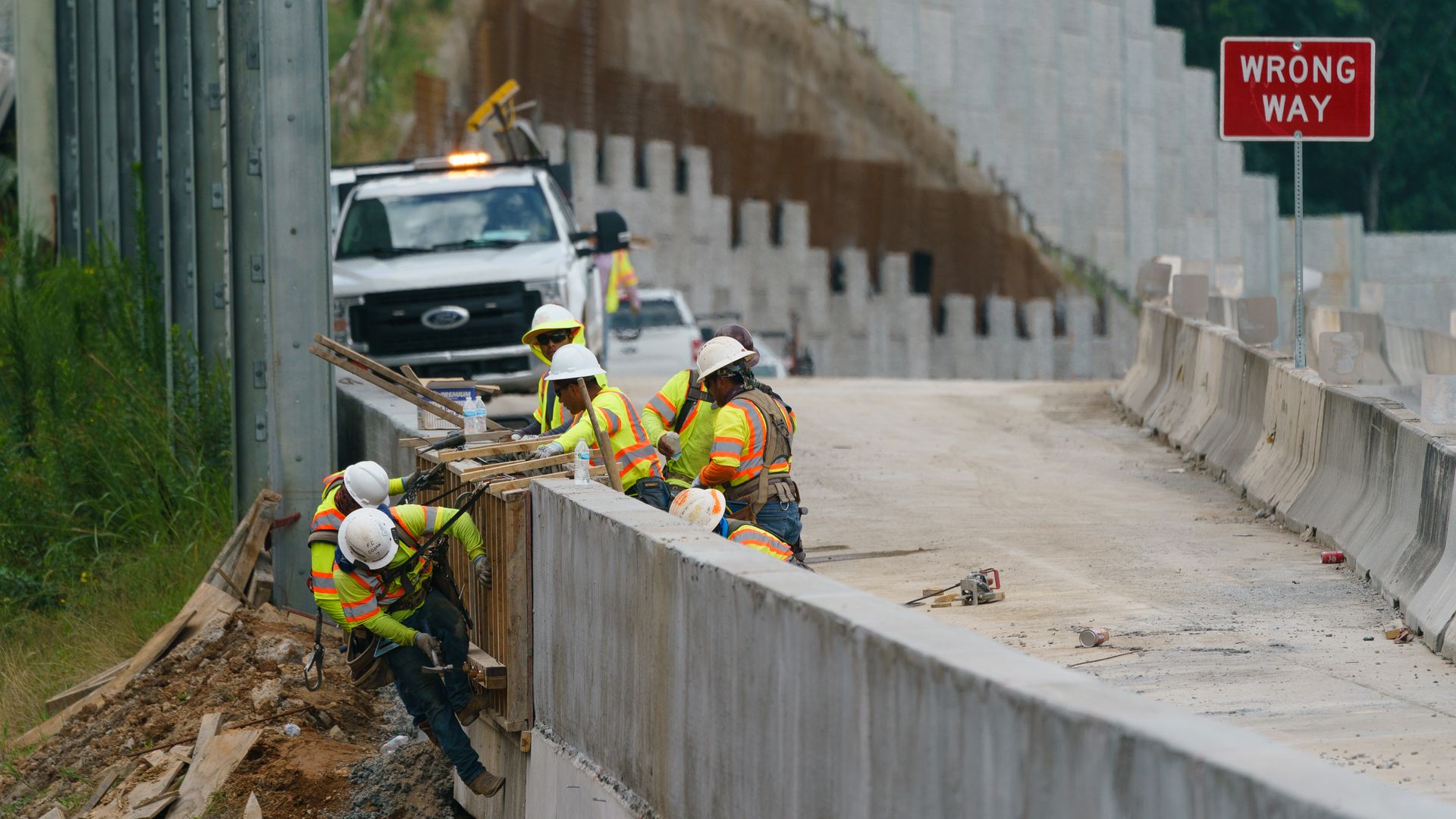Infrastructure deal on brink
Add Axios as your preferred source to
see more of our stories on Google.

Highway construction on Interstate 285 in Sandy Springs, Georgia. Photo: Elijah Nouvelage/Bloomberg via Getty Images
Senate negotiators are finalizing how to pay for the $579 billion bipartisan infrastructure package, tapping everything from unused 2020 COVID-relief funds to targeting the Medicare rebate rule, people familiar with the matter tell Axios.
Driving the news: The core group of negotiators plans to present a finished version of their deal to the broader G22 group on Sunday evening.
- There are lingering disagreements about how much to spend on public transit, but if the expanded bipartisan group approves the emerging deal, passage on the Senate floor could happen later this week.
- “We’re about 90% of the way there,” Sen. Rob Portman (R-Ohio), said on ABC New's "This Week."
Why it matters: By settling on actual dollar amounts, including $70 billion leftover from President Trump's coronavirus relief packages, the negotiators are closer to convincing members of both parties that pay-fors will offset proposed new spending — making it more likely a finished bill passes the Senate.
- It's also a double-edged sword: By getting specific, they risk antagonizing industries and interest groups now realizing they're being singled out to fund billions in new roads, bridges and broadband.
- “We are, and have, agreed jointly on about roughly $70 billion of funds that were not spent that will be redeployed to help pay for this infrastructure package,” Sen. Mark Warner (D-Va.) told Martha MacCallum on "Fox News Sunday."
- “A very, very important category for me is how all this is going to get paid for,” said Sen. Pat Toomey (R-Pa.) told CNN.
- “There are people who think this is monopoly money, but it’s not,” said Toomey. He is not a member of the bipartisan G22.
Go deeper: In addition to $70 billion in leftover COVID-19 relief money, there’s roughly $50 billion to be gained by repealing proposed changes to how Medicare pays drugmakers.
- Sen. Bernie Sanders (I-Vt.) had also targeted that rebate money for his separate $3.5-trillion package.
- In addition, the bipartisan group will target unused unemployment insurance and proceeds from Strategic Petroleum Reserve sales, and the same of unused IP addresses and a telecommunications spectrum auction.
The intrigue: Some senators are awaiting an official “score” from the Congressional Budget Office, which may — or may not — help the bipartisan group bolster its case that new spending is paid.
- A generous CBO score will help lawmakers sell the package to their colleagues.
- An unfavorable CBO score won't necessarily kill the bill if the bigger group of G22 senators all agree the pay-fors will cover the new spending.
